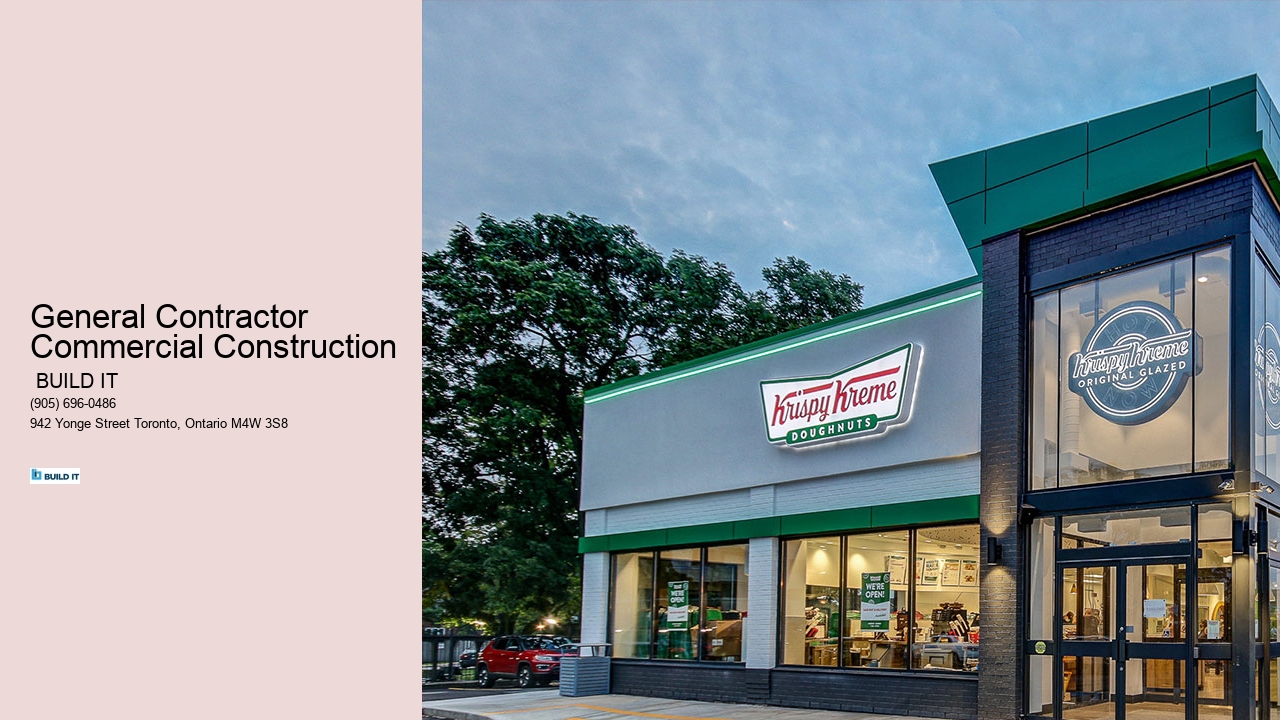

At BUILD IT Toronto, we create commercial and industrial spaces that empower businesses to grow and thrive in Canada’s most energetic city. Our reputation for delivering quality, innovation, and seamless collaboration has earned us the trust of top-tier brands and entrepreneurs who count on us to turn their visions into reality—on schedule, on budget, and with unmatched craftsmanship. From trendy eateries and retail stores on Queen West to modern medical clinics in North York and efficient warehouses in Scarborough, we’ve done it all—and we’re only getting started.
What makes us different? We’re not just contractors—we’re full-scope construction partners. Our team manages every detail, from pre-construction planning and permit approvals to full design-build delivery, construction oversight, and turnkey completion. By housing all services under one roof, we streamline the process and reduce delays, while keeping communication open at every stage.
Our project managers, supervisors, and tradespeople understand Toronto’s unique construction challenges—from zoning bylaws to tight job sites. Whether we’re working downtown, in Vaughan, Mississauga, or Etobicoke, we consistently deliver top-tier results. We specialize in diverse sectors like retail, medical, hospitality, office, industrial, and franchise development.
We take pride in our work and our relationships. At BUILD IT Toronto, we treat clients as partners, not just customers. Our team listens carefully, aligns solutions to your business goals, and uses real-time tools to ensure transparency from start to finish.
In a fast-paced city like Toronto, your space must be as dynamic as your business. That’s why we’re here—to build exceptional spaces that work hard and look great. Let’s build it together.

Before a commercial contractor can break ground on a new project, understanding the local zoning laws is crucial. Zoning regulations are established by municipal authorities to dictate land use in specific areas. These laws determine what types of buildings and businesses are permitted in various locations within the city or county. Commercial contractors must evaluate if their project aligns with existing zoning designations such as commercial, residential, industrial, or mixed-use. Failure to comply with zoning requirements can lead to legal challenges and potentially costly delays or modifications to the project.
Securing the necessary permits is a complex task that requires meticulous attention to detail. Commercial contractors must submit detailed plans and applications to local government agencies for review. This process includes ensuring that building designs meet all safety codes, environmental regulations, and accessibility standards. The timeline for permit approval can vary greatly depending on the scope of the project and the efficiency of the reviewing department. Contractors need to plan accordingly and allocate sufficient time for this phase in order not to disrupt project schedules.
Participation in community planning meetings can be an integral step for commercial building projects. These forums offer an opportunity for contractors and developers to present their proposals, gather feedback, and address any concerns raised by community members or officials. Engaging with the community early on helps foster positive relationships and may smooth out potential obstacles posed by public opposition or misunderstanding about a project's impact on the neighborhood.
Once permits are secured and construction begins, maintaining compliance with zoning laws and building codes remains paramount throughout all phases of construction. Periodic inspections by government officials will ensure that work proceeds according to approved plans. Any deviations from permitted designs could result in stop-work orders or additional reviews, underlining the importance of strict adherence from start to finish. For commercial contractors, navigating permitting and zoning regulations is not merely a preliminary hurdle but an ongoing responsibility critical for successful project completion.
| Commercial Construction Services | |
|---|---|
| Commercial Builder | Experienced builder for all types of commercial projects. |
| Commercial Construction | Full-service construction for office, retail, and industrial spaces. |
| General Contractor Commercial Construction | End-to-end general contracting services for commercial sites. |
| Design Build Commercial Contractors | Integrated design and construction services for streamlined delivery. |
| Commercial Tenant Improvement Contractors | Custom interior build-outs and renovations for tenants and landlords. |
Before diving into a commercial construction project, it is crucial for clients to grasp the various cost components that form their budget. This includes direct costs such as labor, materials, equipment, and subcontractor expenses. Indirect costs must also be considered; these can include administrative fees, legal services, insurance premiums, and safety compliance expenditures. Understanding these elements helps in creating a comprehensive financial plan that accommodates all possible expenses.
Formulating a realistic budget requires clients to not only consider immediate costs but also account for contingencies and potential overruns. A rule of thumb is to allocate an additional 5-10% of the total projected costs for unforeseen circumstances. This financial cushion ensures that the project can continue smoothly even when unexpected issues arise. Clients should work with experienced contractors who can provide accurate estimates and help set expectations based on industry standards and past projects.
Timelines are closely tied to budgeting as delays often translate into increased costs. It's imperative for clients to understand the project timeline and how it impacts their budget. Overseeing the scheduling of tasks and ensuring milestones are met on time can prevent cost escalations due to overtime charges or extended equipment rentals. Clear communication between clients and contractors regarding deadlines is essential in keeping the project within its financial confines.
Once a construction project kicks off, active budget management becomes key. Monitoring expenditures against the allocated budget should be an ongoing process throughout construction phases. Clients should hold regular meetings with their contractor to review financial reports, discuss cost-saving options if necessary, and make adjustments according to project progress or market changes in pricing of materials or labor rates. Active involvement helps prevent overspending and ensures that funds are used efficiently towards successful completion of the commercial construction endeavor.

Delays, cost overruns, permitting, supply chain issues, and labor shortages.
They offer planning, permitting, site work, structural building, interior finishing, and project management.
You gain faster delivery, single-point accountability, improved collaboration, and often lower costs.